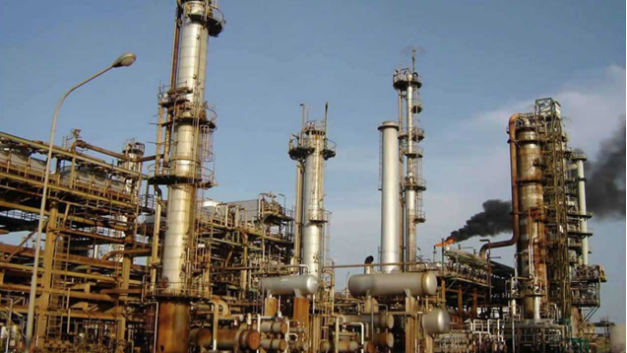Nigeria’s three refineries – Port Harcourt Refining Company (PHRC), Kaduna Refining & Petrochemical Company Limited (KRPC), and Warri Refining & Petrochemical Company Limited (WRPC), recorded an operational deficit of N66.278 billion in 2017.
Breakdown of the deficits showed that KRPC suffered a loss of N32.617 billion; WRPC, N22.147 billion and PHRC, N11.514 respectively.Nigerian refineries with a combined installed capacity of 445,000 barrels per day (bpd) have been performing below installed capacity, resulting to heavy dependent on importation of petroleum products.
For example, total crude processed by domestic refineries (KRPC and PHRC) for the month of December 2017 was 507,732 Metric Tonnes (MT), with PHRC accounting for 370,125MT while a total of 137,607MT was processed by KRPC. This translates to a combined yield efficiency of 88.99 per cent compared to 105,735 MT of crude processed in November 2017 which translated to a combined yield efficiency of 89.61 per cent.
For the month of December 2017, the two refineries produced 300,264 MT of finished petroleum products and 151,554 MT of intermediate products out of the 507,732 MT of crude processed at a combined capacity utilization of 26.99 per cent compared to 5.81 per cent combined capacity utilization achieved in the month of November 2017.
The Nigerian National Petroleum Corporation (NNPC) said in its monthly financial report released recently that the ongoing revamping of the refineries will enhance capacity utilization once completed.NNPC stated: “The Corporation has been adopting a Merchant Plant Refineries Business Model since January 2017.
The model takes cognizance of the Products Worth and Crude Costs. The combined value of output by the three refineries (at import parity price) for the month of December 2017 amounted to ₦66.23 billion while the associated crude plus freight costs and operational expenses were ₦69.14billion and ₦8.19 billion respectively. This resulted to an operating deficit of ₦11.10 billion by the refineries”.
Group Managing Director of the corporation, Dr. Maikanti Baru said as part of the ongoing reforms in the NNPC, the corporation had been holding far-reaching discussions with some consortia to get the best funding options towards the refineries’ overhaul.
He added that the corporation, under his watch, had recorded remarkable progress in resuscitating some of the nation’s critical downstream infrastructure, a development which had ensured seamless supply of products Nationwide, until the recent past hiccups which is now under control.
“Since coming on board, we have made the revamp of our abandoned assets and critical downstream infrastructure a key component of our corporate vision of 12 Business Focus Areas (BUFA),” he stated.Baru said over the last few months, several crude oil, petroleum products and natural gas pipelines were resuscitated while more than half of the nation’s 21 strategic depots were also upgraded.He decried acts of pipeline vandalism, crude oil theft and sabotage which he noted had resulted in huge loss of revenue, lives and property as well as damage to the environment.
The GMD called on the security agencies and other stakeholders nationwide to collaborate with the corporation in its on-going campaign against act of sabotage on the nation’s oil and gas facilities.
While attributing the recent fuel challenges faced in parts of the country to the nefarious acts of hoarders, diverters, profiteers and smugglers, Baru stressed that the corporation was working with relevant stakeholders to ensure the sufficiency currently witnessed nationwide is sustained.
Source: Guardian













